Table of Contents
Nearly half of marketers say that organic search offers the best returns of any channel. And search engine optimization (SEO) is the marketing strategy responsible for that success.
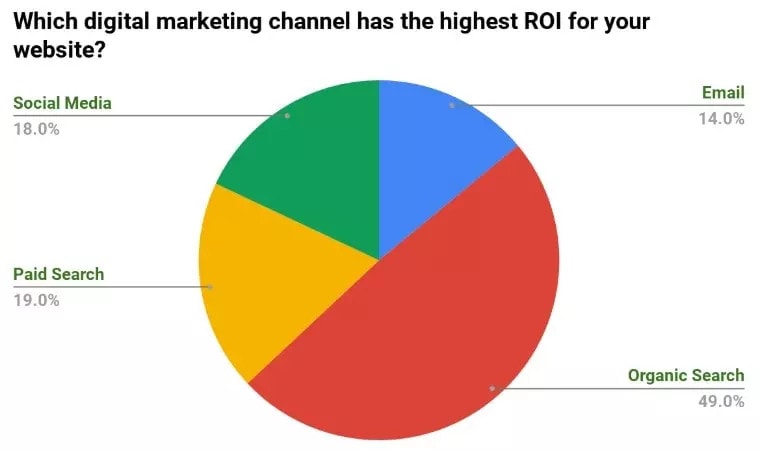
Despite its effectiveness, there are still many misconceptions about how SEO works. To truly benefit from this strategy, you have to move past outdated principles and tactics. Knowing some of the most common SEO myths will allow you to focus on only the areas of SEO that will serve your business in the long run.
Myths about SEO to stop believing in 2021
SEO misconceptions vary greatly. Some are rooted in outdated technical understanding of search algorithms. Others are oversimplified approaches to optimization or come from within the SEO industry itself.
And while some of these ideas have a small impact on performance, others can be counterproductive and very harmful to your success. These are 15 SEO myths that you absolutely need to do away with in 2021.
Myth #1: SEO is dead
At least once a year, someone pronounces SEO dead. This couldn’t be further from the truth. According to Hubspot’s 2021 State of Marketing Report, SEO is the second most-used strategy behind social media marketing.
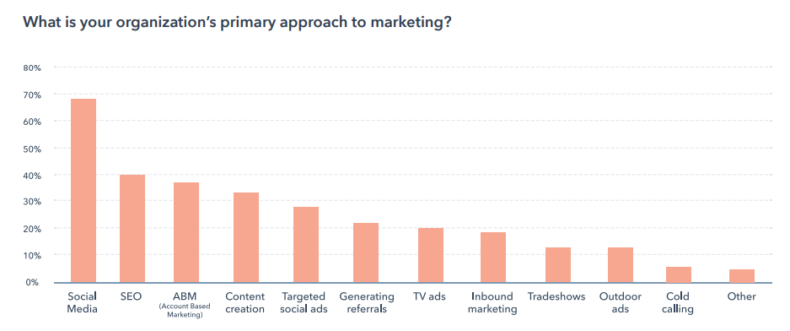
And to keep up with increasing demand, the SEO service industry is continuing to grow rapidly:
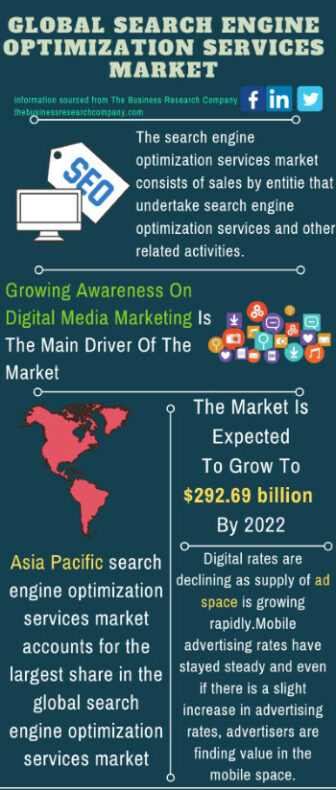
Because industries, ideas, and user search preferences are constantly changing, SERPs change as well. As long as you produce new content that is unique and valuable to the user, you can do SEO to reach a wider audience.
Myth #2: Backlinks are the most important SEO ranking factor
Backlinks are still one of the top-ranking factors, but they are only one of the countless ways to boost your SEO performance.
In fact, websites with low domain authority and weak backlink profiles can outperform sites with lots of backlinks. A lower-authority site can get ahead of you in search results if:
- Your backlinks come from low-quality sources.
- Your site doesn’t provide a good user experience.
- Your content doesn’t satisfy search intent.
- The other site has more brand mentions and overall awareness than you do.
- Your content isn’t unique and doesn’t offer users something that no one else can.
A 2015 Moz study found that 22.2% of web pages on the first SERP have no backlinks pointing to them. So, while it’s typically easier to rank with backlinks, they are not the only way to get to page 1.
More important than backlinks is satisfying user intent – or in other words, creating content that gives the user exactly what they’re searching for in the most user-friendly way possible. There are four types of user intent that explain why someone searches for a particular term.
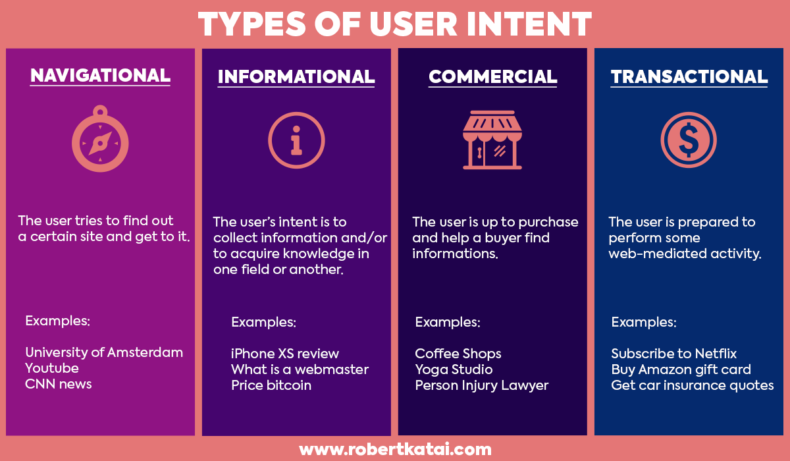
To satisfy their intent, users will continually click on SERP listings, explore the content, and return to the SERP if the page they click on first doesn’t give them what they want. In SEO, this is known as “the loop” your goal is to close it by providing exactly what users are looking for.
To do this, you have to develop content that’s targeted to user search intent. This starts with keyword research. As you research valuable words to use on your web pages, you need to figure out what people want to find when they search those keywords in Google.
Search the keywords in Google. What’s ranking on page one for the search query? Is it a video? A blog post? Product page? If it’s a blog post, what kind of post? A listicle? Guide? Checklist? Google has spent countless resources to figure out exactly what users want to find when they search a term. Studying search results is like using a cheat sheet. Before creating your content, make sure it’s what Google wants to show users for a particular search term.
Myth #3: Keywords aren’t important anymore
Since Google now understands semantic search terms, many believe that keywords don’t matter as much. After all, if the search engine can process any query, doesn’t that make the actual query itself less important?
Even though Google has sophisticated technology to analyze search terms, keywords are still essential for determining relevance. They signal to crawlers that the content closely aligns with the user’s query.
“The most basic signal that information is relevant is when a webpage contains the same keywords as your search query. If those keywords appear on the page, or if they appear in the headings or body of the text, the information is more likely to be relevant.”
In other words, if your content doesn’t have relevant keywords, the chances of it ranking are slim. That’s because keywords are a basic foundation for ensuring crawlers recognize your content’s value for a given search term.
Research has shown that top-ranking content has an average keyword density of 2-8%. While keywords may not have the same impact as they used to, please don’t make the mistake of leaving them out of your content altogether. Add them within anchor text, title tags and meta descriptions, headings, and sprinkle them throughout body content to send strong signals to crawlers and searchers.
Myth #4: Social media isn’t a ranking factor
Indeed, Google doesn’t use social media activity as a ranking factor. However, there is evidence to suggest a correlation between an active presence on social media and higher organic rankings.
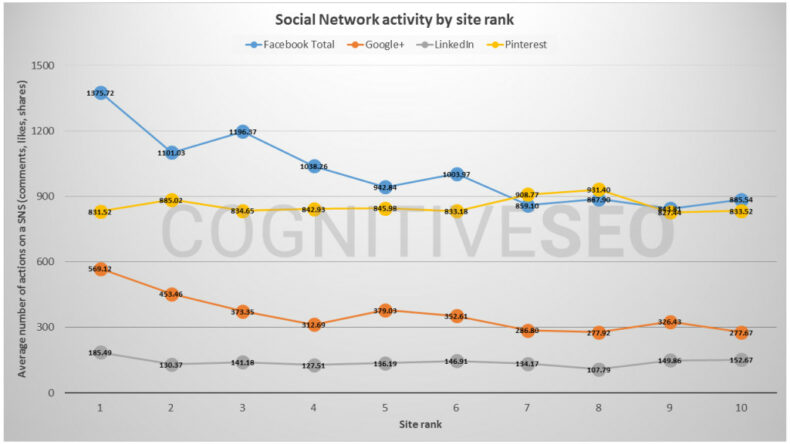
So, even though it doesn’t have official status as a ranking criterion, online social media activity can help improve your SEO performance.
On the other hand, social signals are a well-known Bing ranking factor. Bing looks at the strength of your social media accounts to understand how credible you are within your field. It considers things like:
- How often do you post
- Whether or not you engage with users
- What type of content do you share
- Who you interact with (i.e., other brands or influencers within your field)
Completely dismissing social media as part of your digital marketing strategy can hurt your Bing SEO. Having at least one account where users can connect with you is a smart way to solidify your credibility while improving brand perception.
Myth #5: Keywords are at the center of SEO strategies
In the past, a keyword-centric SEO strategy was popular among webmasters. But this dependence on keywords for better search engine rankings ultimately led to harmful black hat techniques like keyword stuffing.
For long-term success, your SEO strategy has to center around the user. The best way to ensure this is to clearly define user search intent and build a user and crawler-friendly site experience. Including keywords alone won’t necessarily solve the user’s problem. You need to make sure that whatever you’re creating helps them complete their search.
When you know what type of information a user is looking for, you can create content that satisfies that need. While keywords show Google the web page’s relevance, those keywords need to be framed the right way for the content to truly provide value.
Myth #6: SEO agencies can guarantee top rankings
There is no such thing as a guaranteed SEO result. SEO can give your website the best possible chance of ranking, but only Google can decide which pages appear on the top of search engine results pages (SERPs).
The field of SEO is based on established best practices and research surrounding organic rankings. It isn’t an exact science. No one can manipulate the search algorithm to choose their piece of content over any of the other qualified web pages for a search term. Nobody has an in with Google. And any SEO expert who guarantees a certain outcome may not be an expert after all.
Myth #7: Long-form content will always rank higher than shorter content
Google’s main focus is providing user-friendly, comprehensive content. But comprehensive, high-quality content doesn’t have to be long. The substance of the page is more important than its length.
A dictionary definition, for example, is a short but effective piece of content. It doesn’t require 1,000+ words to satisfy the user’s needs. Oftentimes, a comprehensive topic discussion results in a long web page, but the length is simply a byproduct of the process. Focus more on answering all user questions and less on hitting a certain word count for your content.
Myth #8: SEO is “set it and forget it”
A search engine’s algorithm updates thousands of times per year. Because the expectations are always shifting, you can’t just implement SEO techniques and then hope for the best.
Unlike PPC ad campaigns, which generally run for a finite amount of time, SEO is ongoing. Getting your website and content optimized can take a while, but the workload steadily decreases the more established your website becomes in the space. Not only that, but SEO is one of the few strategies that can deliver compounding returns as time goes on with relatively little maintenance.
Myth #9: You need technical skills to do SEO
There are indeed technical components of website optimization, but they do not all require special skills to complete. Adding structured data to generate rich snippets, for example, requires an understanding of schema markup. Like with most techniques, though, you can pay for SEO services or install plugins to do the technical SEO work for you. In actuality, the most effective SEO strategies need little to no technical know-how.
Myth #10: If you do SEO, you don’t need PPC
Although they both help generate more site traffic, SEO and PPC are separate marketing approaches. Neither strategy is better than the other. Each has its advantages and disadvantages.
SEO typically costs less, helps generate more site traffic, and produces long-term results. PPC, on the other hand, is best for generating sales and new leads quickly.
SEO and PPC can be used at the same time as well. If you’re in a competitive industry like business or legal services, the use of both is especially beneficial.
Myth #11: You should start seeing results after 6 months
Putting a timeline on SEO returns is difficult because it depends on a multitude of factors like:
- How competitive your industry is
- The overall quality of your website content
- Whether or not you have a strong backlink profile
- How old and/or established your website is
- The size of your marketing budget
A study by Markitors found that the timeframe for noticeable SEO returns varied across industries. While a medical services business saw results in just two months, a staffing agency saw results after more than 6 months. Google has stated that you should expect a wait of four months to a year for SEO to impact your rankings.
At the very least, you should expect that those first few months should be establishing the foundations of your site structure, content marketing approach, and online presence. This puts your brand in the best position possible once Google has indexed the majority of your content.
Myth #12: You need a blog to rank well
Google prefers fresh content for search results, but it can come in many forms. The idea that you need blog discounts all the other ways that businesses improve their SEO results. These are some of the ways you can boost rankings without blog content:
- Publish client testimonials on your website.
- Tell your brand story and post about your company’s leaders and employees.
- Focus on backlink building by writing guest posts and building meaningful relationships with other players in your industry.
- Create a mobile-friendly website that provides an excellent user experience.
- Make a resource library or news page that provides links to helpful content elsewhere on the web.
- Create cases studies of your successes.
- Compile downloadable resources like ebooks, checklists, reports, and whitepapers, and build a landing page for each.
It’s also important to track SEO metrics like bounce rate and click-through rate (CTR) to determine if these strategies work. Use Google Analytics to find areas of opportunity and then brainstorm new ways to improve your site’s user experience.
Myth #13: MyDomain Authority is a Google ranking factor
While a helpful SEO metric, domain authority (DA) is not a Google ranking factor. Moz developed it as a standard calculation for a site’s ranking potential in search engines.
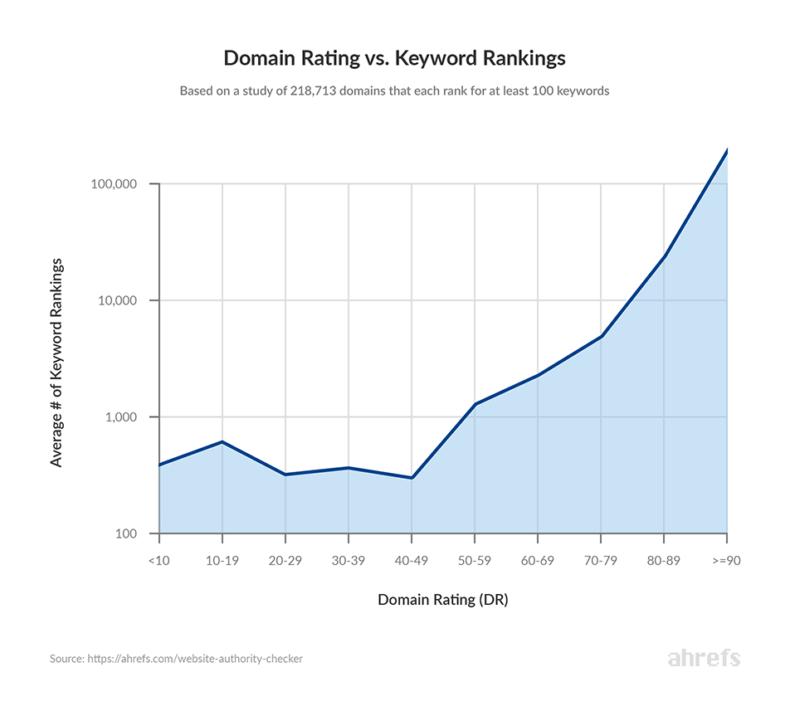
Ahrefs research has shown that DA does correlate with higher rankings, though, so it is a useful score to track.
Domain authority won’t affect your rankings. Rather it will help you assess your site’s overall potential to rank in Google. You can use it to determine keyword difficulty, find authoritative backlink sources, and more.
Myth #14: More links means higher rankings
Earning backlinks is an essential component of any successful off-page SEO strategy. But the Google search algorithm is much more interested in how many high-quality links you have, rather than the overall quantity of links.
Your link-building strategy should focus on getting links from relevant and trustworthy sources. For example, if you sell sporting goods, you want to target sports blogs or retailers (Ex. Nike, Adidas, etc.) for links. Getting a backlink from a well-known brand is much more effective than having a bunch of links from spammy websites.
Myth #15: If a term has low search volume, don’t bother with it
For many businesses, long-tail keywords have a much higher SEO ROI than terms with high search volumes. These terms have several benefits, most notably that they tend to correlate with higher conversion rates and lower costs.
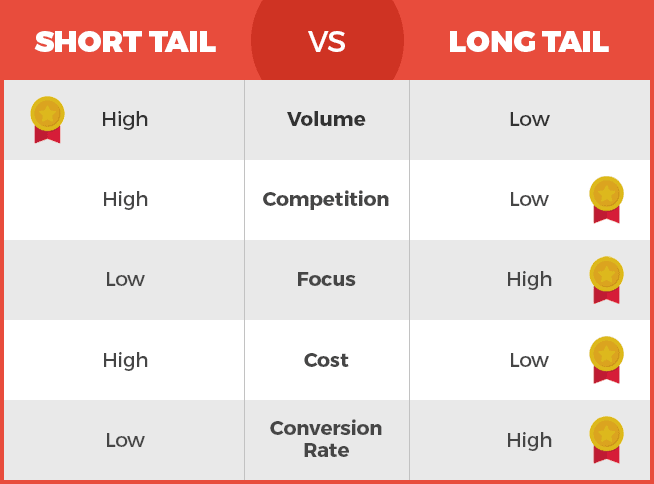
While optimizing for short-tail keywords is valuable for building traffic, it may not always be the best choice for faster SEO results unless you’re a big brand with a budget to match.
Get a complimentary SEO audit
Many business owners agree that organic search is among the most effective digital marketing channels. But SEO myths can send you down the wrong track of the right strategy. SEO is a constantly evolving, highly adaptable source of organic traffic, and you have to treat it that way if you want to succeed. Stay on top of myths, misconceptions, best practices, and emerging strategies, and Google will reward you when you implement your knowledge.
Want to see how you’re doing with SEO? Get an instant SEO audit below. Or, schedule a free consultation to see how intent SEO can boost search traffic revenue by 700%.
